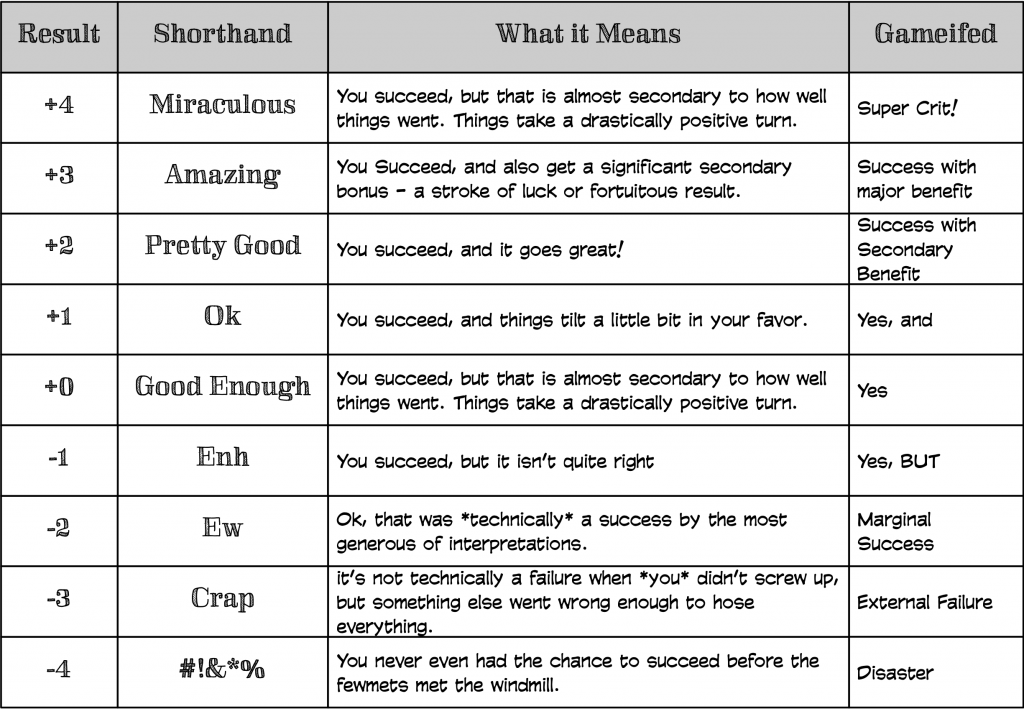I have thought about diceless Fate on numerous occasions, but it’s a hard sell for fairly personal reasons. See, one of the reasons Fate exists is that Fred & I loved the Amber DRPG, but wanted to bring some randomness back into it, for our own sensibilities. Still despite that resistance, the reality has always been that Fate is trivial to convert to diceless play by simple virtue of the 0-centered dice results. If you just assume that all dice rolls come up 0, you’re about 90% of the way to supporting diceless play.
This works ok. Play becomes much more about the exchange of fate points and the impact of aspects, which is kind of fun, but also demands a little bit more precision in the language about where fate points come from and when (thus, the previous post). All solvable problems. But what’s the fun in that?
So I got to thinking about a thing you see in PBTA derived games, where the dice produce flavorful results, but don’t actually take difficulty into account in the rolling. I admit, that sits poorly with me, but it struck me that the idea could be twisted to work by separating the die roll entirely from the question of success or failure.
That is, consider a Fate game where success or failure is determined entirely by whether or not your skill (or approach, or whatever) is equal to or greater than the difficulty of the the task you’re trying. Rules remain the same – treat it like you rolled a zero and keep moving.(fn)
But then add an extra step: Roll the dice for the outcomes.
Now, this is going to be a little counterintuitive for gamers, since we have been trained to consider success/failure to be the outcome, but in this case the question of success has already been resolved dicelessly, so the roll is entirely to determine the other things that the roll would normally handle. The results would be something like (EDIT: NOW WITH THE RIGHT TABLE):
In this system, aspect invocations can be used in two ways:
- to add +1 to the skill or approach (to buy success)
- As die flippers on the roll
Now, it’s worth noting that this is part of what the previous setup was for – in this model, the GM can also use compels to flip dice because that can’t bring failure in the traditional sense, but it can complicate a situation.
OK
Now given that, here’s the really interesting trick. The Press Your Luck mechanic.
If you are facing a situation where you know you’re going to fail, but want to try anyway, you absolutely can. Go ahead and roll the dice. Then remove any plusses you rolled – each plus so removed increases your effective skill/approach by 1.
If that’s enough for you to succeed, then great! Just use the remaining dice to determine your outcome as normal.
If it’s not enough? Well, you still use the result, but replace “Succeed” with “Fail”.
This has been rattling around in my head for a bit now, and I really need to try it out.

